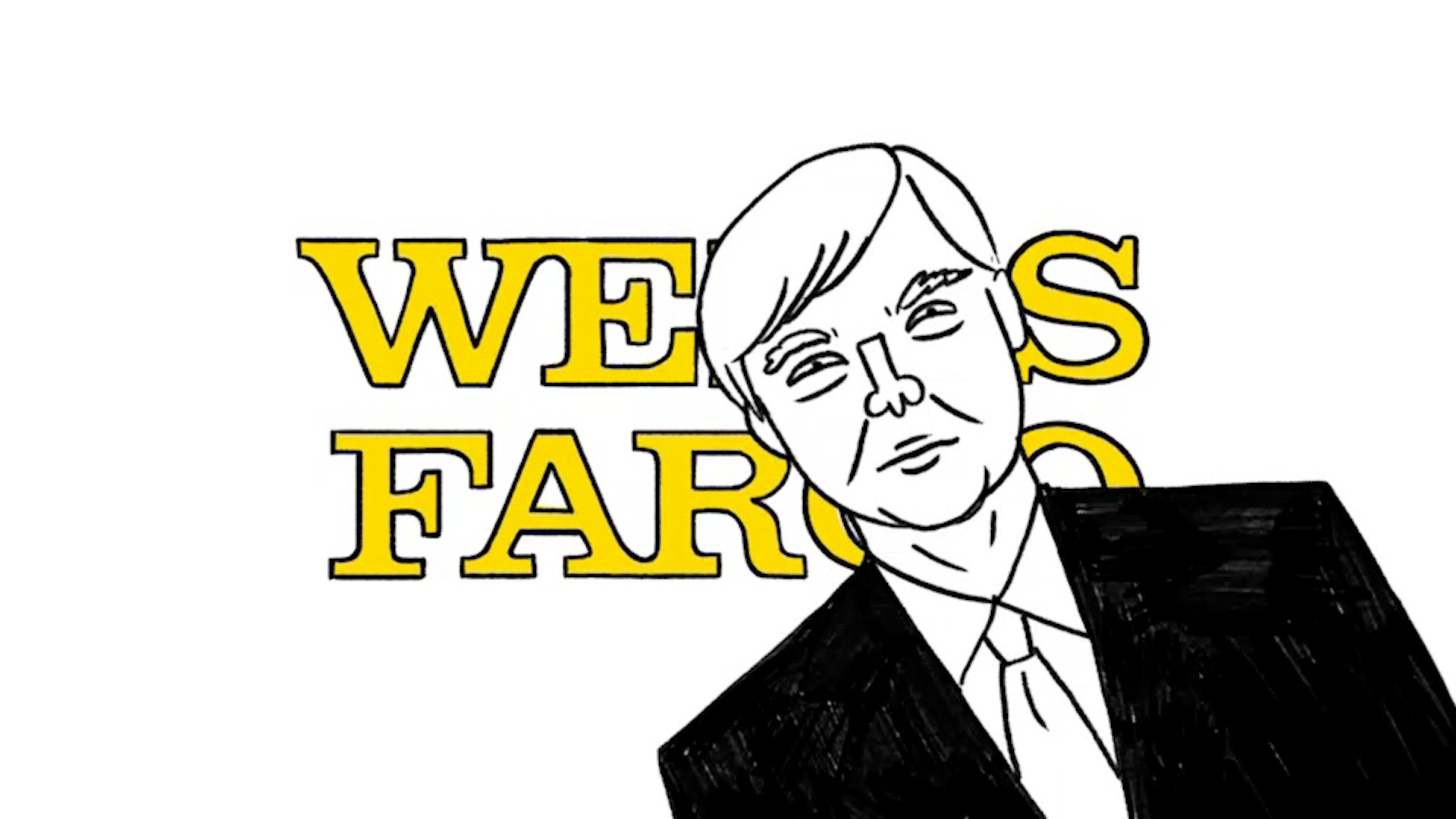It's a good time to be a banker in America. Tax cuts that disproportionately benefited the rich passed last year, making it way easier for the top 1 percent—many of whom are in the financial sector—to spend big on luxury travel or new houses or just stash cash in offshore accounts. Banks just enjoyed their most profitable quarter in history. And the Trump administration has been corroding the Consumer Financial Protection Bureau (CFPB), the agency set up after the last financial crisis to guard regular people against abusive behavior from banks and other institutions.But on Tuesday, Congress apparently decided that Wall Street needed a helping hand, passing a significant rollback of post-financial crisis banking regulations imposed under Barack Obama. By doing so, experts on financial regulation said, lawmakers of both parties made another crisis that much more likely—while making it harder to see disaster coming until it's too late.

The proposed law has now passed both chambers of Congress and is expected to be signed by Trump. Tellingly, it had the support of moderate Democrats who have taken plenty of money from the banking industry like US senators Heidi Heitkamp of North Dakota and Tim Kaine of Virginia (a.k.a. Hillary Clinton's running mate). It was framed by backers as a sensible measure easing the "burden" of regulations on small- and medium-sized banks that don't pose a massive danger to the economy—or at least aren't as worrisome as the JP Morgan Chases of the world. Specifically, it cuts the frequency of stress tests—basically, check-ups by the feds to see how ready the banks would be to sustain huge losses like they did during the financial crisis—for medium-sized banks, and eliminates them entirely for the smallest ones.But as the New York Times reported, even the biggest banks are now slated to get less oversight from the feds about their own internal accounting and debt loads. Basically, the incentives are being aligned here for bankers of all stripes to be more reckless about loading up on shady assets. Those assets could be subprime mortgages like the ones at the heart of the last crisis, increasingly popular green-energy home improvement schemes that put borrowers on the path to foreclosure, or some new "innovative" financial product that has yet to catch regulators' attention. The bill also guts the "living will" requirement that banks have detailed plans for how to fold in the event they teeter on the brink of collapse, as so many did in 2008.This is a big deal. Remember when a bunch of the biggest lenders in the country either disappeared or had to get bought up to avoid a total stock market crash? The 2010 Dodd-Frank bill forced banks to at least attempt to be ready to prevent that kind of too-big-to-fail madness. And while the killing of that rule only applies to banks with under $250 billion in assets, in 2007 and 2008 that threshold included some of the notorious meltdown institutions, like Countrywide and IndyMac."One of the lessons from the financial crisis and the housing crisis is we really did not have much forewarning that it was going to get very ugly very quickly," Brad Miller, a former Democratic congressman from North Carolina who helped write the 2010 Dodd-Frank financial reforms, said in an interview. "The next crisis may come from practices that we're being told not to worry about. We were certainly told not to worry about much of anything a decade ago."It's not just liberals or bank haters or populists who are pissed off or even downright worried about this stuff either. When the Senate version of this bill was about to pass in March, none other than the Wall Street Journal editorial page, hardly a bastion of left-wing sentiment, warned that while softening regulations on little banks made sense, easing "capital and liquidity standards for the giants will make the financial system more vulnerable in a panic.""This is part of a broader trend," Sheila Bair, the former chair of the Federal Deposit Insurance Corporation (FDIC), told me, referring to a "slippery slope" of letting banks load up on debt."This coming absolutely at the wrong time," Bair added, noting that student debt, credit card debt, and other kinds of exposure were entering worrisome territory. "There is no reason to do this. Banks are fat and happy. There's no evidence of any kind of credit shortage—on the contrary, credit standards are loosening. That typically happens toward the end of the cycle [of growth]. Lending standards start to loosen…. They should be preparing for the next downturn."The bill will also, as the Times reported, make it easier for shady lenders to operate without scrutiny from the feds. This matters because America has a long and storied tradition of banks and other financial institutions discriminating against people of color. Most notoriously, this consisted of "redlining," or refusing (or just complicating) the issuance of loans to people in suspect—read: nonwhite—neighborhoods. It's not shocking that President Trump, who along with his father has been accused of housing discrimination in his buildings, would support such a measure, but that Democrats would be on board with such a throwback policy is stunning when they are simultaneously trying to seize the mantle of reform in government ahead of the 2018 midterms."It was just an extinction event for the African American middle class," Miller, the former Congressman, told me of the housing market's collapse between 2006 and 2008. "When you have a home, when you own your own home, you're in the middle class. When you lose your home to foreclosure, you really lose your membership in the middle class. The effect on the African American middle class, and a somewhat lesser extent on the Latino middle class, was catastrophic. And a lot of those provisions to get at, to identify racial disparities—those requirements have been eliminated."So even when they aren't being bilked by fake accounts set up in their name or charged phony and excessive overdraft fees, consumers will face the prospect of doing business with unchecked predators preying on people of color. And while it's old news that the American legal and financial systems are set up to make the rich richer at the expense of everyone else, the risk to everyone from another crash is growing—fast."It's 2006 all over again," Bair, the former FDIC chair, told me, adding, "It wasn't that long ago and people already want to forget. I guess the campaign donations trump memories."Sign up for our newsletter to get the best of VICE delivered to your inbox daily.Follow Matt Taylor on Twitter.
Advertisement

The proposed law has now passed both chambers of Congress and is expected to be signed by Trump. Tellingly, it had the support of moderate Democrats who have taken plenty of money from the banking industry like US senators Heidi Heitkamp of North Dakota and Tim Kaine of Virginia (a.k.a. Hillary Clinton's running mate). It was framed by backers as a sensible measure easing the "burden" of regulations on small- and medium-sized banks that don't pose a massive danger to the economy—or at least aren't as worrisome as the JP Morgan Chases of the world. Specifically, it cuts the frequency of stress tests—basically, check-ups by the feds to see how ready the banks would be to sustain huge losses like they did during the financial crisis—for medium-sized banks, and eliminates them entirely for the smallest ones.But as the New York Times reported, even the biggest banks are now slated to get less oversight from the feds about their own internal accounting and debt loads. Basically, the incentives are being aligned here for bankers of all stripes to be more reckless about loading up on shady assets. Those assets could be subprime mortgages like the ones at the heart of the last crisis, increasingly popular green-energy home improvement schemes that put borrowers on the path to foreclosure, or some new "innovative" financial product that has yet to catch regulators' attention. The bill also guts the "living will" requirement that banks have detailed plans for how to fold in the event they teeter on the brink of collapse, as so many did in 2008.
Advertisement
Advertisement
Advertisement

